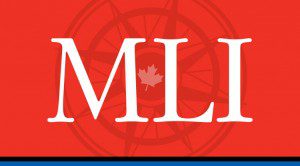 Merchants want government to cap transaction fees on credit card use, write Julian Morris and Ian Lee. Such price fixing would likely harm consumers.
Merchants want government to cap transaction fees on credit card use, write Julian Morris and Ian Lee. Such price fixing would likely harm consumers.
By Julian Morris and Ian Lee, Nov. 10, 2017
Credit cards are owned by nearly 90 percent of Canadian and are used in approximately 65 percent of point-of-sale payments. However, large merchants want government to impose price caps on the transaction fees that enable card issuers to incent credit card use. Such price fixing would likely harm consumers.
Since 2008, the value of retail transactions involving credit cards has risen by over 50 percent due to their convenience, security, insurance, warranties on purchases and, arguably the biggest driver, the rewards that cards offer. Owners of reward cards — about 80 percent of Canadians with credit cards have at least one — cite rewards as the primary motivator.
Credit card benefits are paid through a combination of annual fees charged to cardholders and transaction fees charged to merchants. Although cards with more benefits attract higher annual fees, consumers recognize the bargain. A new Macdonald Laurier Institute study found that those earning $40,000 might expect annual rewards valued at $450 while paying just $75 in fees. Those earning $90,000 would benefit by about $1350 while paying $225.
Contrary to claims that rewards have induced spending that increased credit card debt, a Bank of Canada study shows that increased credit card use over the past decade has come mainly from “convenience users” who pay off their cards monthly and now represent a majority of credit card holders.
Some merchants object to the higher fees needed to cover the cost of higher rewards, claiming declining profitability, and want the government to impose price caps. Yet Stats Canada data shows that their profitability did not decline as a result, and that the number of merchants who accept credit cards has increased in the past decade.
Middle-class Canadians benefit enormously from credit cards and associated rewards.
In Australia, the country with the longest-running experiment with price caps, we found that, as with other price controls, price caps tend to reduce the supply of the price-capped good and cause other prices to rise. Australia’s price caps lowered the fees paid by merchants by 43 percent on average but raised the annual fees on credit cards by an average of 40 percent. The effect? Reward earnings from comparable cards fell by an average of one third.
If that experiment was run in Canada, we estimate that Canadians would be worse off, with middle-class households bearing much of the pain. For an individual or household earning $40,000, the net loss would be $66 to $187. For an individual or household earning $90,000, the net loss would be $199 to $562.
We also estimate that merchants would experience an aggregate net loss of between $1.6 billion and $2.8 billion (taking into account merchant savings from lower fees). And we estimate that reduced spending and saving could cause GDP to fall by between 0.12 percent and 0.19 percent per year, while federal government revenue could fall by between 0.14 percent and 0.40 percent.
Middle-class Canadians benefit enormously from credit cards and associated rewards. Were caps to be imposed, the harm would be felt across the economy.
Julian Morris is vice president of research at Reason Foundation and a senior scholar at the International Center for Law and Economics. Ian Lee is associate professor of strategic management and international business at Sprott School of Business, Carleton University.
They are co-authors (along with Geoffrey Manne and Todd Zywicki) of a new MLI study, titled “Punishing Rewards: How clamping down on credit card interchange fees can hurt the middle class.”




